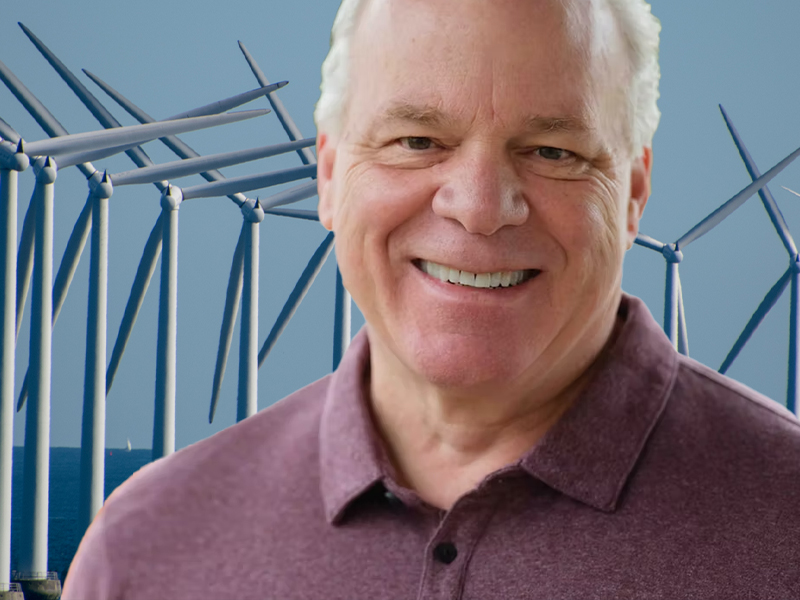Former Senate President Steve Sweeney, now a candidate for governor of New Jersey, appears to be distancing himself from Governor Phil Murphy’s wind energy agenda—a policy he once championed since day one—as he campaigns to lead the state.
Sweeney, who was one of Murphy’s closest allies in promoting offshore wind projects since their inception, is now advocating for a broader, more pragmatic energy strategy amid growing concerns over rising utility costs.
Sweeney’s past support for wind energy was unequivocal.
As Senate President, he played a key role in passing the Offshore Wind Economic Development Act in 2010, laying the groundwork for New Jersey to become a hub for wind energy production and manufacturing.
At a groundbreaking ceremony for a wind energy project, Sweeney hailed the initiative as transformative, stating, “Today’s groundbreaking represents the first step in a new era of economic development and job growth in South Jersey, with the ability to produce economic benefits for generations to come.
Wind energy is our future – it’s clean, it’s safe, and it offers the opportunity for New Jersey to be a dominant leader in creating a new sector for our nation’s economy.”
However, as he vies for the governorship in 2025, Sweeney’s rhetoric has shifted.
In a recent post on X, he declared, “New Jersey energy costs are outrageous. As Governor, I’ll take an all-of-the-above approach to energy. From solar farms, to nuclear, and natural gas, we can lower energy costs, create good-paying jobs, and provide needed relief for families and businesses.” Earlier this month, he also called for a halt to Murphy’s Energy Master Plan, citing its impact on affordability—a stark contrast to his earlier enthusiasm for the governor’s renewable energy goals.
This pivot comes as New Jersey grapples with some of the highest energy costs in the nation, a pressing issue for voters that Sweeney has made a cornerstone of his campaign. Political analysts suggest this shift is strategic, aimed at broadening his appeal to moderates and working-class families frustrated by rising utility bills and the ambitious—and costly—transition to clean energy.
While Sweeney hasn’t entirely disavowed wind energy, his emphasis on a diversified energy portfolio marks a departure from the singular focus on offshore wind that defined his tenure as Senate President.
Critics have been quick to label the move as political opportunism, pointing to Sweeney’s long partnership with Murphy and his instrumental role in advancing the very policies he now questions.
“He can’t have it both ways,” said one X user in response to his recent posts. “Sweeney pushed wind energy hard—now he’s bailing when it’s politically convenient.” Others, however, see it as a pragmatic evolution, reflecting the economic realities facing New Jerseyans.
Sweeney’s campaign has yet to fully address the apparent inconsistency, but his messaging suggests a balancing act: maintaining support for renewable energy while prioritizing affordability and job creation across multiple sectors. Whether this recalibration resonates with voters—or fuels accusations of flip-flopping—could prove pivotal as the gubernatorial race heats up.
For now, Sweeney’s transformation from wind energy advocate to all-of-the-above pragmatist underscores the challenges of aligning ambitious climate goals with the immediate needs of a cost-burdened electorate. As New Jersey looks to its energy future, Sweeney’s next moves will likely reveal just how far he’s willing to distance himself from his past to secure its highest office.
